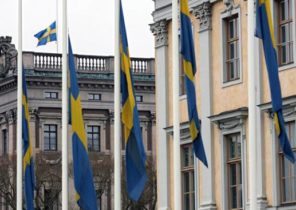
Even before the new US President, Donald trump has started a revision of the Agreement on free trade in North America between the U.S., Canada and Mexico (Nafta, English acronym), which is causing so much concern, the first decision in the White house hurts its southern neighbor and the rest of Latin America. The US withdrawal from the Treaty on TPP — an agreement of the major world powers with 11 countries on both sides of the Pacific ocean, was initiated by Barack Obama – although he was expected, but nevertheless dealt a serious blow to the Mexican economy and, to a lesser extent, two other Latin American countries signing this document: Peru and Chile. On the other hand, the solution trump indirectly makes life easier for the countries of the southern common market (Mercosur), led by Brazil and Argentina. Now they will have time to conclude new contracts and to take their place in the new architecture of international trade. The greatest benefit is China.
If we talk about Mexico, she suffered the most. Given that its economy is largely dependent on exports —especially in the USA, which account for 80% of Mexican exports, the chamber of Commerce were our only means of entering new markets on the other side of the Pacific ocean.
The need to find new trading partners besides the U.S. is now more than ever. Uncertainty regarding the renegotiation of the Nafta agreement (to this end, the presidents of the United States and Mexico intend to hold a January 31 meeting in Washington on what has repeatedly insisted trump) makes the government of Enrique peña to seek alternative buyers of Mexican goods. And in this respect, the TPP opens up vast opportunities: Mexico’s exports to the countries — participants of the agreement the Nafta except the USA and Canada in 2015 amounted to only nine billion dollars compared to 320 billion exports to the United States.
The TPP agreement, signed in February last year, but not finally ratified, laid the foundations for the launch of trade agreements at the highest level, which hitherto was signed by Australia, Brunei, Canada, Chile, USA, Japan, Malaysia, Mexico, New Zealand, Peru, Singapore and Vietnam. They account for 40% of world GDP, 26% of the volume of international trade and 10% of the world population. The output of the world’s major powers embarked on the path of protectionism, under the sign which begins the era of trump, causes of TPP fatal blow. In order for the Treaty entered into force, it had to be ratified until February of 2018 at least six countries, which account for 85% of GDP. Without USA it is impossible to achieve. Now you need to decide will be whether a viable alternative contract without the participation of Washington, as proposed a few weeks ago, the new Zealand government, or, according to Japan, the second largest economy in the TPP, a Treaty without the participation of the United States “will have meaning.”
Bartesaghi Ignacio (Ignacio Bartesaghi), head of Department of International business and integration processes of the Catholic University of Uruguay, explains to the correspondent of El Pais, the confusion in the Mexican government after the decision of trump. “All that changed the TTP, which was relatively good for this country, it all turns to dust, he says. — A huge step forward was the deepening of relations with countries in the Asia-Pacific region: Japan, Vietnam, Australia, Singapore… To date there is only one trade agreement with Japan from all countries of the region. Why? Because the structure of production does not fit well with the economic needs of Asian countries”. This Monday, Mexican President Enrique peña Nieto stressed that Mexico intends to pursue bilateral agreements on trade with countries in the region that were included in the Partnership. Bartesaghi, however, believes that the “most obvious risk” for Mexico is promised to trump the renegotiation of Nafta. The American stock exchange, however, did not respond to doubts about medium-term economic Outlook and raised the rates of almost 1.7%. Pesos in distress since, as trump left the political stage, the United States also cheered and gained 0,4% against the U.S. dollar by the end of the day in Mexico.
Big difference
In the case of other Latin American countries in the TPP — Chile and Peru — there is a different situation. “This will not be for them a big blow,” — says the analyst of the Uruguayan. Unlike Mexico, Chile already has bilateral trade agreements with almost all countries in the Asia-Pacific region that are members of the TTP. “For them, the Partnership served the purpose of strengthening trade relations, but it did not confer any advantages in access to markets, as in the case of Mexico.” Peru, although it has trade relations with Australia, Brunei or New Zealand, but maintains an active exchange with other members of the TTP. “There have been improvements, but Peru as a whole, is significantly ahead of Mexico in relation to trade policy with countries in the Asia-Pacific region”, — stressed Bartesaghi. At the same time, the expert indicates that the US withdrawal from the Partnership can be good news for the MERCOSUR countries, where the leaders are Brazil and Argentina: “They just got behind in the development of trade policy and will receive additional time to conclude a new agreement.” In this sense, according to the Uruguayan, the position of the new American administration can play a catalytic role and provide an impetus to the immortal conclusion of the agreement between the European Union and the southern common market.
One of the main benefits, which analysts saw as the TTP, was the ability to connect between a country’s different levels of development: developed with emerging and developing between themselves. “In recent years developing countries, particularly Asian, have gained more and more weight in international trade, which in turn contributed to increasing volumes of foreign trade turnover between the North and the South, the North and the South,” emphasizes Anthony Estevadeordal (Antoni Estevadeordal) in a recent report of the American analytical center of the Brookings Institution.
Bartesaghi, in the same way that many of the speakers at the international forum in Davos, no doubt that trump’s decision not to ratify the TPP is a “serious strategic mistake”, “He refuses to set the rules of the game in international trade, leaving China the opportunity to trade freely with the world”. TTP will continue its existence without the United States? “I think so. With the exception of Vietnam and Japan, all other countries want to keep it and is ready to sign new agreements,” concludes the expert. However, obstacles to this arise as time goes on after the announcement of the American President: the Minister of foreign Affairs of Chile has confirmed that his country would not insist on the signing of an agreement that made its future even more uncertain.






